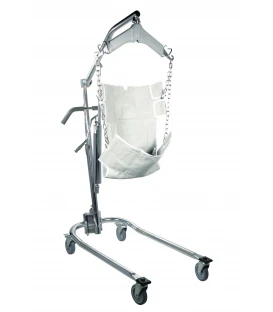The Role of Technology in Advancing Health Product Quality: A Deep Dive

In the dynamic landscape of healthcare, technology has emerged as a powerful driver of innovation and quality improvement. From the development of cutting-edge medical devices to the use of artificial intelligence in drug discovery, technology is reshaping the way health products are designed, manufactured, and evaluated. This article explores the transformative role of technology in advancing the quality of health products.
The journey of a health product, whether it's a pharmaceutical drug or a medical device, begins with research and development (R&D). Here, technology plays a pivotal role in accelerating the discovery process and enhancing the precision of results. For instance, high-throughput screening technologies allow researchers to rapidly test thousands of compounds for potential therapeutic effects, significantly speeding up the drug discovery process.
Bioinformatics and computational biology, which leverage powerful computing capabilities to analyze complex biological data, have also revolutionized R&D. These technologies enable researchers to model biological systems, predict drug interactions, and even design drugs at the molecular level. This not only accelerates the development of new health products but also enhances their specificity and efficacy, contributing to improved quality.
In the realm of medical devices, technologies like 3D printing and robotics have opened up new possibilities for personalized medicine. 3D printing, or additive manufacturing, allows for the production of custom-made devices tailored to the individual patient's anatomy, enhancing both the functionality and compatibility of the device. Robotics, on the other hand, has led to the development of advanced surgical tools that enhance precision and minimize invasiveness, improving patient outcomes.
The manufacturing phase of health products is another area where technology has made significant strides in quality improvement. Advanced manufacturing technologies, such as continuous manufacturing and automation, have enhanced the efficiency, consistency, and scalability of production processes. These technologies not only ensure the uniformity and reliability of health products but also enable rapid response to market demands.
Quality control is a critical aspect of health product manufacturing, and here too, technology plays an indispensable role. Technologies like near-infrared spectroscopy and high-performance liquid chromatography enable real-time monitoring of production processes, allowing for immediate detection and correction of any deviations from quality standards. This not only ensures the quality of the final product but also reduces waste and improves efficiency.
In the post-market phase, technology aids in the monitoring and evaluation of health products. Pharmacovigilance, the science of detecting, assessing, and preventing adverse effects or any other drug-related problems, has been greatly enhanced by data mining and machine learning technologies. These technologies enable the analysis of large volumes of data from various sources, such as electronic health records and social media, to detect potential safety issues related to health products.
Digital health technologies, such as mobile health apps and wearable devices, also contribute to the quality of health products by providing real-world data on product use and patient outcomes. This data can inform product improvements and guide the development of new products that better meet patient needs.
In conclusion, technology plays a crucial role in advancing the quality of health products at every stage of their lifecycle, from R&D and manufacturing to post-market surveillance. As technology continues to evolve, we can expect further advancements in the quality and effectiveness of health products. However, it's important to note that the integration of technology in health product development and manufacturing should be accompanied by appropriate regulatory oversight to ensure safety and efficacy. As we embrace the technological revolution in healthcare, the ultimate goal remains the same: to improve the health and well-being of patients around the world.














